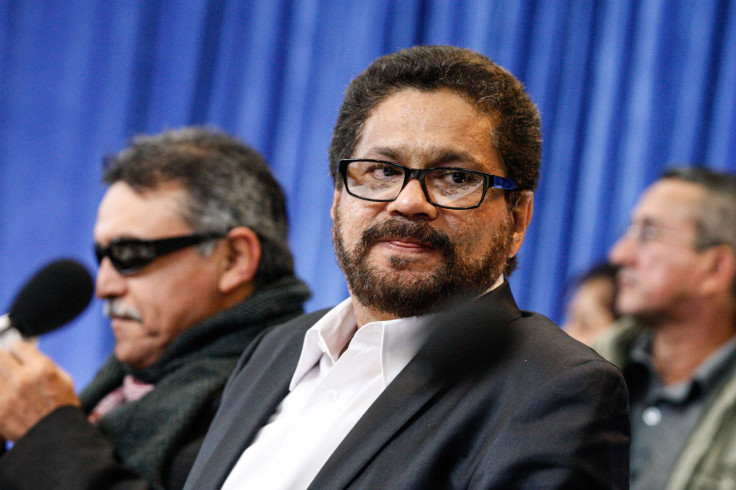Guns And Olive Branches: Colombia's Farc Rebels Sit Down For PeaceTalks But Reject Disarmament

The Colombian government and the leftist Farc rebels have launched peace talks in Norway to be followed up with talks in Havana next month in a bid to end nearly five decades of conflict.
The negotiations in Oslo are the first to occur between the two sides after previous talks fell apart in 2002.
In the decade since, the Farc’s forces have been significantly weakened by stepped up military operations and amid growing international condemnation of the paramilitary group’s tactics of holding civilians for ransom and funding its efforts to carry out a Marxist revolution through drug trafficking.
The Colombian government’s main concern in the talks is reaching an agreement for the group to disarm, though the Farc’s chief negotiator Ivan Marquez said that although they came “with an olive branch,” peace did not mean their “arms (would) go quiet,” the BBC reported.
“It (peace) means transforming the state structures -- the economical, financial and military structures," Marquez added.
The Farc has demanded political and economic reforms, as well as land redistribution, which is expected to be addressed in negotiations in Havana, but government negotiators have made it clear that disarmament must be on the table and that any reforms would come through democratic participation in the political process.
“We are not discussing the model of economic development,” said Colombia’s chief negotiator Humberto de la Calle, Reuters reported. “We are not discussing foreign investment. For that to be discussed on the Colombian agenda, the FARC have to lay down their arms, enter politics and win elections."
The Colombian government will also expect to seek the release of all hostages, an end to drug trafficking and prosecution of Farc members who have committed serious crimes.
President Juan Manuel Santos has previously discussed offering lenient sentences for Farc members who have committed crimes in exchange for laying down arms, though human rights groups have criticized the proposal, saying it would provide amnesty for those who violated the law.
The government has also rejected calls by the Farc for a ceasefire during the talks, saying that the military would continue to engage the rebels until an agreement has been finalized, a move perceived to prevent the Farc from prolonging the talks.
Santos is facing re-election in 2014 and hopes to reach an agreement before then, while the weakened rebels are looking for a détente with the military.
The Farc claims its forces are around 18,000, the same as it was in 2001, but the government estimates that its numbers have decreased to around 8,000.
© Copyright IBTimes 2025. All rights reserved.





















